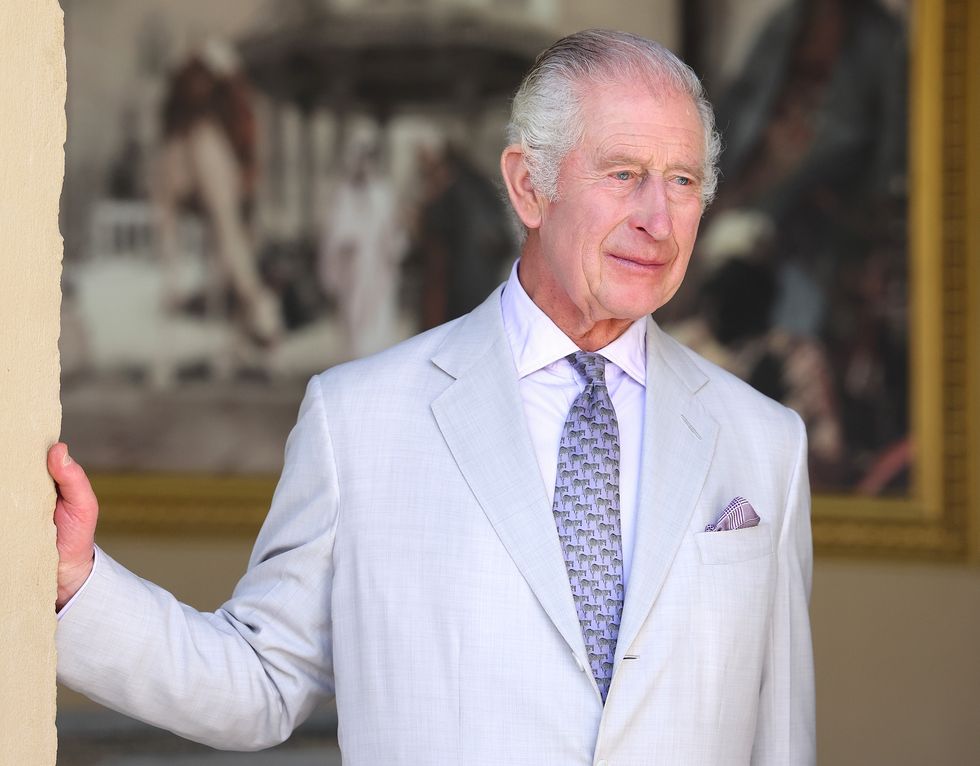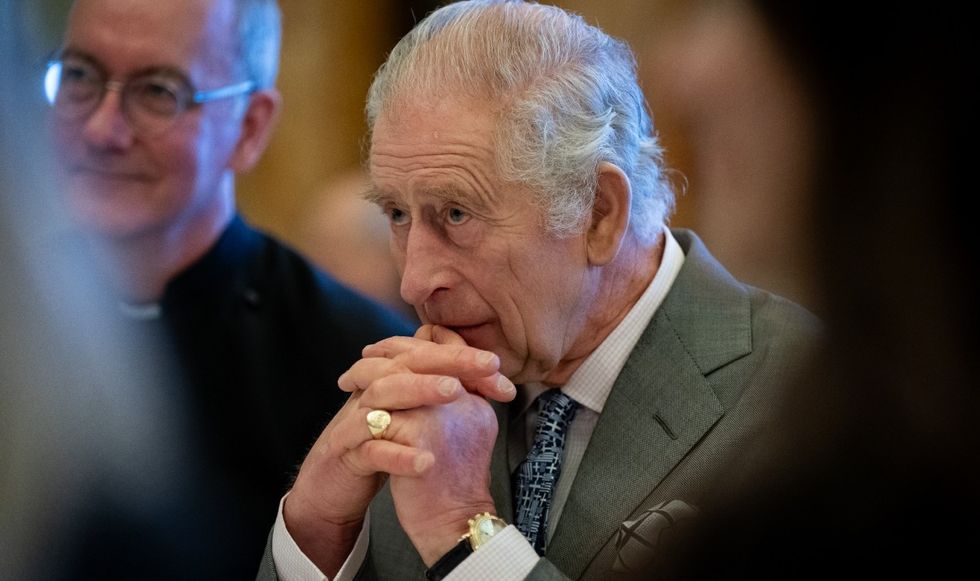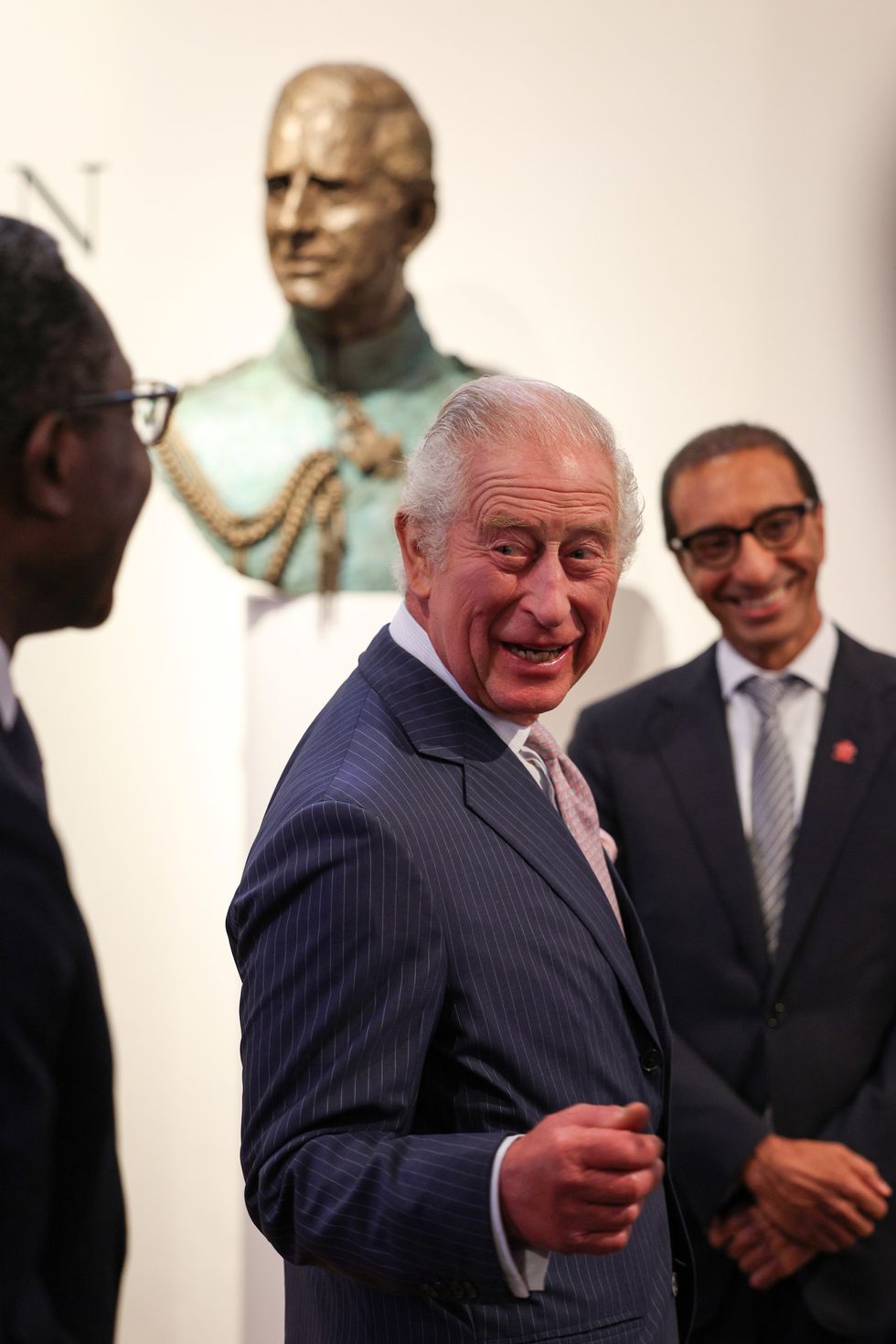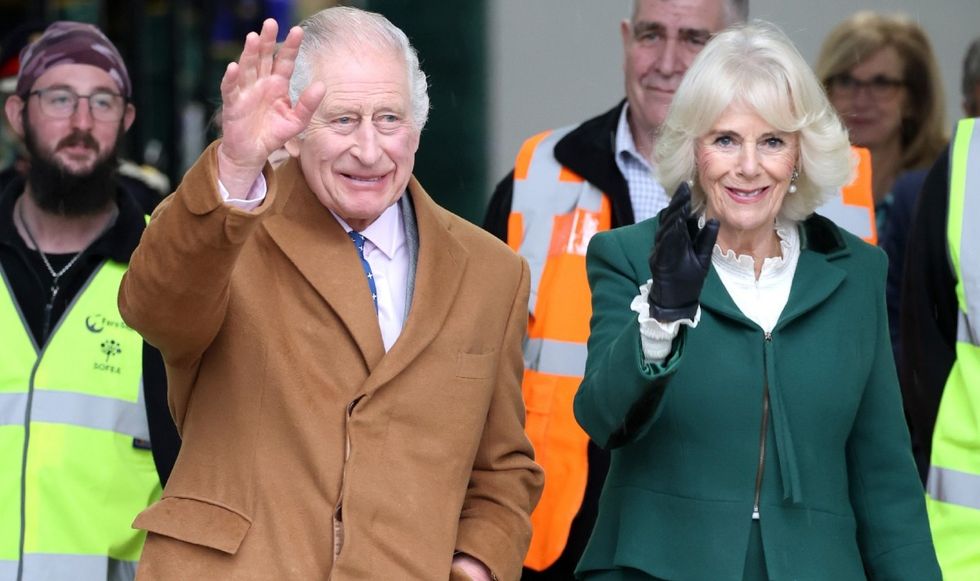The King arrived at a London hospital today ahead of his prostate treatment
Don't Miss
Most Read
Trending on GB News
The King has shared his “delight” over the surge in health awareness in the UK following his diagnosis in a new statement.
Last week, the King announced that he was going to hospital for a procedure on an enlarged prostate.
Following the announcement there was a surge in public interest into the condition as King Charles broke usual protocol by sharing his medical details.
A statement this morning said: “The King was this morning admitted to a London hospital for scheduled treatment.

The King is delighted over public awareness of prostate conditions.
Getty
“His Majesty would like to thank all those who have sent their good wishes over the past week and is delighted to learn that his diagnosis is having a positive impact on public health awareness."
The King arrived at hospital this morning with his wife, Queen Camilla after travelling from Norfolk to London last night.
Buckingham Palace’s announcement last week sparked a 1,000 percent surge to the NHS website.
The NHS website’s prostate enlargement page saw more than 11 times the number of visitors than the day before the King’s statement.
 King Charles is in hospital for an enlarged prostatePA
King Charles is in hospital for an enlarged prostatePAThe page views on the NHS website raised from 1,414 the previous day to 16,410, which averages one click every five seconds.
Prostate Cancer UK also said that the number of users using the online risk checker jumped to 97%.
The charity praised the King “for his openness that’ll inevitably raise more awareness about the condition.”
The NHS symptoms of prostate cancer website states several signs such as needing to rush to the toilet, difficulty in starting to pee, feeling the bladder in not empty and blood in urine.

The King's announcement sparked a 1,000 percent surge to the NHS prostate webpage.
PALatest Royal News:

Queen Camilla travelled with the King to hospital today.
GETTYThe site also states that as men get older their prostates get larger because of a non-cancerous condition called benign prostate enlargement.
Buckingham Palace said King Charles’s condition was benign and he would be having a “corrective procedure."
Ian Eardley, the national clinical director for NHS England, talked about the condition being more common in older men and encouraged publicising the condition.
Eardley said: “The nature of these things if it becomes public knowledge will lead to more men seeking help. That’s a good thing.”









